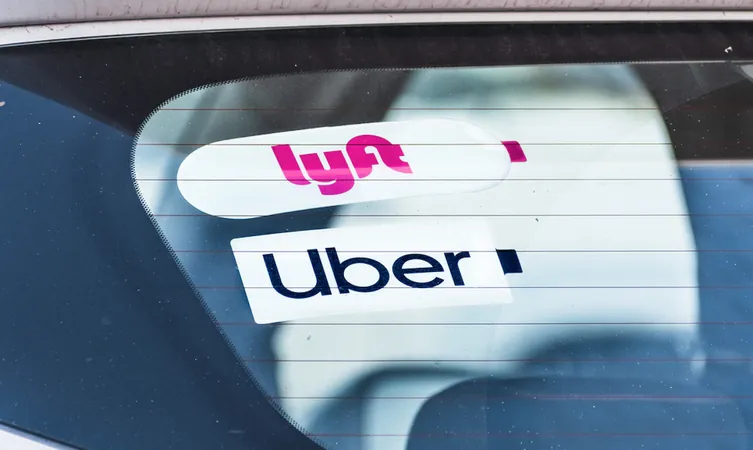
Supreme Court Declines to Hear Uber and Lyft's Appeal on Gig Worker Misclassification
2024-10-07
Author: Kai
Supreme Court Declines to Hear Uber and Lyft's Appeal on Gig Worker Misclassification
In a significant setback for Uber and Lyft, the Supreme Court has decided not to hear their appeal regarding the classification of gig workers, a decision that could have far-reaching implications for the companies and their drivers.
The appeal was linked to lawsuits filed by the state of California, which accused the ride-hailing giants of misclassifying their workers as independent contractors. This classification has been a contentious issue, particularly in light of California's stringent labor laws. According to reports, the Supreme Court's refusal to intervene means that the earlier ruling from a California appeals court will stand, thereby enforcing the state's right to protect workers' rights over arbitration agreements previously signed by the drivers.
The California appeals court determined that the lawsuits were valid and acknowledged the state’s role in enforcing labor laws, emphasizing that the arbitration agreements do not absolve Uber and Lyft from potential liabilities related to withheld wages. This ruling came before the passage of California's Proposition 22, which aimed to allow Uber and Lyft to classify their drivers as independent contractors while removing certain worker benefits.
As a result of the Court's decision, both companies may now face substantial financial repercussions, potentially having to pay back wages to tens of thousands of drivers. This ruling could cost Uber and Lyft millions if they cannot reach a settlement with the state.
Further compounding the challenge for gig workers, many have reported heightened frustration regarding delays in pay. Workers have expressed that the existing payment infrastructure is rife with challenges—high fees, slow processing, and issues with currency conversion are particularly problematic for freelancers and independent contractors.
A recent survey highlighted alarming statistics: 65% of freelancers reported losing or sacrificing income due to the inability to engage in cross-border work because of currency incompatibility. A significant portion of these workers expressed dissatisfaction with the current state of payment systems, with one-third indicating they wait three to five days for payment, and 15% facing delays beyond five days.
As the gig economy continues to evolve, the implications of the Supreme Court's decision could set a precedent, impacting how companies operate and the rights of workers in this fast-growing sector.


 Brasil (PT)
Brasil (PT)
 Canada (EN)
Canada (EN)
 Chile (ES)
Chile (ES)
 España (ES)
España (ES)
 France (FR)
France (FR)
 Hong Kong (EN)
Hong Kong (EN)
 Italia (IT)
Italia (IT)
 日本 (JA)
日本 (JA)
 Magyarország (HU)
Magyarország (HU)
 Norge (NO)
Norge (NO)
 Polska (PL)
Polska (PL)
 Schweiz (DE)
Schweiz (DE)
 Singapore (EN)
Singapore (EN)
 Sverige (SV)
Sverige (SV)
 Suomi (FI)
Suomi (FI)
 Türkiye (TR)
Türkiye (TR)